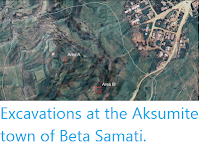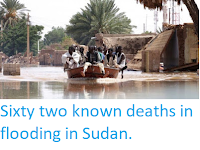The Canadian Supreme Court in Ottawa has ruled that a Vancouver-based company can be sued in British Columbia for actions carried out at a mining project in Eritrea, East Africa. The mining company, Nevsun Resources, had objected to the case being brought in a Canadian court on the basis that Canadian law usually requires cases to be brought in the jurisdiction where the offence occurred. However the court rejected this argument, agreeing with three Eritrean men, currently living in Canada as refugees and attempting to gain recompence from Nevsun, that the nature of the allegations comprises a 'breach of customary international law', and that the Canadian courts therefore have a duty to hear the case.
The Bisha Mine site. Bisha Mining.
Customary international law is a legal principle introduced after the Second World War that holds certain matters are breaches of Human rights so serious that they should be policed internationally, in effect giving courts in all jurisdictions both the right and the duty to try cases involving such breaches regardless of where they occurred. In this case it is alleged that the men's rights were breached when they were forced to work as conscript labourers during the construction of facilities at the Bisha Mine site in Eritrea, and that they were forced to work twelve hour shifts, six days per week, and endured punishments including being beaten with sticks and being tied up and left out in the sun.
The Eritrean National Service Program enables the government to conscript citizens for both military service and as workers on projects deemed to be of public worth. It has been widely condemned internationally, with an enquiry carried out by the United Nations in 2016 describing the program as a widespread and systematic abuse of Human rights amounting to a system of modern slavery, with about 400 000 people trapped in a system of lifelong service.
This system has caused many people to flee the country, resulting in a wave of refugees arriving on countries in the Middle East and Europe. Nevertheless, many governmentss still regard Eritrea as an ally in the region, with the effect that companies operating in Eritrea face little if any sanction in their home nations for actions that take place there.
See also...
Follow Sciency Thoughts on Facebook.







